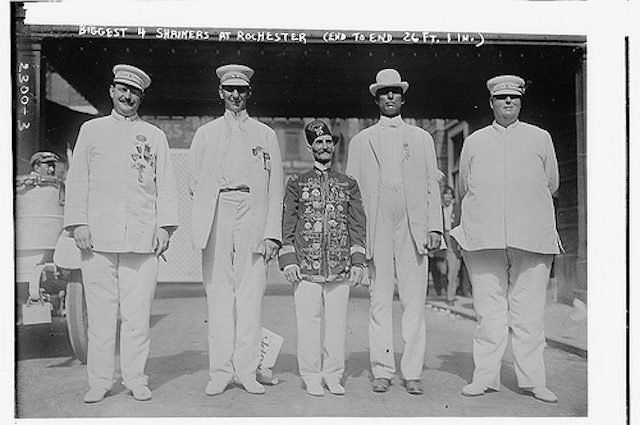At this very moment there are likely countless men and women standing in immaculate white lab coats staring at beakers filled with various kinds of liquid, discovering the secrets of our world. Many of these researchers, scientists, and academics will likely learn amazing things about the human body, nature, and the animal kingdom, but that’s boring. So instead, here are 10 actual, real studies that discovered fascinating things that are ultimately kind of pointless. Starting with…
10: A study concluded denim jeans never need to be washed

The study
: A guy named Josh Le wore a pair of denim jeans for 15 months straight. In that time he intentionally spilled food on them, let them get wet when it rained and even spent a month sleeping in them. When swabbed, the jeans showed normal levels of bacteria compared to a pair worn for a few days, suggesting they never really need to be washed.
Why it’s fascinating: Along with showing that we probably wash all of our clothes too much it shows that after a certain period of time, the bacteria your body produces will never be produced in high enough quantities to harm you, meaning you could technically wear your favorite pair of jeans forever.
Why it’s pointless: We kind of already knew this. From the moment they were invented denim jeans were never really intended to be washed or cleaned; they were designed as pants for workmen and laborers. Even Levi’s, the most famous company to make the garment, have come out and said that washing them is a waste of water because they’re naturally hardwearing anyway. So yeah, all this study did was confirm something everyone already knew: storing jeans on your floor and wearing them every day for a week is totally okay.
9: Guy cracks knuckles on one hand every day for 50 years to prove it’s not dangerous
The study: Over the course of 50 years, curious academic and possible hero Donald Unger cracked the knuckles on his left hand – and only his left hand – twice a day, every day to see if it would result in them developing any problems compared to his right hand, which he never cracked the knuckles on. It didn’t, conclusively proving that doing it won’t increase your risk of getting arthritis.
Why it’s fascinating:
Along with being one of the single longest studies ever undertaken, the study represents an impressive, almost superhuman effort on behalf of Unger to prove someone wrong. In this case, Unger’s mother, who always warned him cracking his knuckles like he was about to beat down a Japanese mob boss would cause him problems later in life.
Why it’s pointless: The study only involved a single participant, Donald Unger. Making it effectively worthless from an academic standpoint, since the only control he had was his own right hand. To be clear, knuckle cracking isn’t thought to have any lasting effect, though few actual, formal studies have been conducted so we don’t really know for sure.
8: Cats can recognize human voices

The study: Researchers working in the University of Tokyo found that cats can seemingly distinguish between the voices of strangers and those of their owner, suggesting that they possess the ability to recognize individual vocalizations in another species. A rare skill for an animal.
Why it’s fascinating: This study shows that cats, like dogs, are capable of recognizing their owner and understanding the power dynamic between themselves and the person who can make it rain food on a whim.
Why it’s pointless: Cats don’t care. The study showed that while cats can recognize the voice of their owner, they don’t react to it any differently to the voice of a total stranger. This is because unlike dogs, which were bred to be obedient to humans, cats basically domesticated themselves because making us feed them is easier than hunting.
7: Shorter men have, well, just a bad time overall

The studies: Many studies conducted over the years have shown that for whatever reason, shorter men earn less, die earlier, are less attractive to women and according to some studies, report having smaller wangs than their taller peers. All in all, shorter men get shafted in nearly every area of life.
Why it’s fascinating: Studies like these highlight the bizarre prejudices people can face for things they quite literally have no control over. Studies about pay differences are especially telling as even if you discount every other factor and only look at people’s DNA, men predisposed to being shorter genetically earn less overall across the board. Less formal studies of things like online dating profiles are also telling, as they show that short men are almost immediately discounted by women simply because they’re short.
Why it’s pointless: These studies don’t really do all that much to fix these issues and instead merely point out that they exist. It also doesn’t help that many of the places that report on these studies – that, remember, highlight a severe imbalance in how people of equal skill and ability are discredited because of an inherited genetic trait – make light of the results, usually with stupid pun headlines. It’s kind of hard to take an issue seriously when places reporting on it do so with headlines like: “Short man syndrome is not just a tall story.”
6: Louder monkeys have smaller testicles

The study: A comprehensive study of the testicles of male howler monkeys found that the louder the monkey could scream, the smaller its fuzzy monkey balls tended to be.
Why it’s fascinating: The study shows that when it comes to evolution, some male species have deliberately limited their ability to reproduce effectively to instead seem more virile and ward off competing males. It highlights an interesting catch-22 in the animal kingdom: is it more useful to be able to attract females and only be able to breed with a few of them, than be able to breed with all of them but struggle to attract any in the first place?
Why it’s pointless: The study itself is fascinating from an evolutionary standpoint and shows how animals today are still adapting along diverging, but parallel paths to dominate their environment. However, many, many places online have tried to use the results to suggest that the loudest monkeys are compensating for their micro-balls. Reading between the lines you can see that this is in an attempt to make a comparison to loud, brash human men who are often accused of compensating for a smaller penis. This muddies the water of the study because the monkeys aren’t compensating for anything; their bodies are simply more adapted to scream louder than other males. An adaptation that just so happens to result in having smaller nuts because there is only so much energy a species can invest in itself.
5: Teaspoons have a half-life

The study: In 2005 a bunch of British researchers attempted to answer a question that has been screamed into the void by British office workers more than insults about their boss: where have all the teaspoons gone? For any Americans reading, this is a constant problem faced by the British workforce and for some reason teaspoons more than any other piece of cutlery seem to go walkies all the time. The study found that teaspoons have a half life and that, to maintain a constant supply of 70 teaspoons for an office, you’d have to buy, on average, 250 every single year due to the rate they disappear into the ether.
Why it’s fascinating: Disappearing teaspoons is an oft discussed phenomenon in the UK and it’s estimated that some 600,000 or so disappear without a trace every single year. So it’s interesting to see that this isn’t just a joke used as a crutch by hackneyed comedians, but a readily observed phenomenon that has been studied by actual researchers.
Why it’s pointless: We still don’t know where the teaspoons go. Explanations for this range from them simply being stolen or lost (which doesn’t really make sense given the vast quantities of them that go missing each year) to their only being a finite number of of teaspoons in existence.
4: North Korea is the 2nd happiest country in the world, according to North Korea

The study: In 2011 eggheads working in North Korea discovered that out of every single country on Earth, their tiny nation was, for some reason, the 2nd happiest on the planet. Being ranked many hundreds of places above South Korea (finally proving that North Korea is indeed best Korea) and the American Empire, which was ranked dead last in terms of the happiness of its citizens.
Why it’s fascinating: North Korea is a strange country that produces more than its fair share of propaganda, most of which centers around the fact North Korea is the coolest and strongest. This makes it quite interesting that a piece of official propaganda would ever suggest North Korea is second best at anything, let alone taking care of its citizens. However, for some reason the North Korean government did exactly this with this ‘study’, admitting that Chinese citizens were happier than its own.
Why it’s pointless: The study is pure propaganda so it has no value beyond being an amusing anecdote about a country that could potentially one day destroy the world in a nuclear holocaust. Which is neat.
3: 250 out of 250 polled children found clowns scary

The study: A poll of children aged 4 to 16 in a hospital in Sheffield, England found that every single one either disliked clowns or was actively afraid of them.
Why it’s fascinating: It should be noted that this study was specifically about improving the decor of children’s wards in hospitals to make them more welcoming and less frightening to kids and young adults, and that clowns were a very popular choice when designing the aesthetic of such places. This study then, in effect, showed that designing children’s wards in this way was actively making hospitals ever scarier to children who were already dealing with being hospitalized by injury or illness. Children of all ages were shown to “universally” dislike clowns and clown related imagery, which becomes kind of hilarious when you realize the study also showed adults felt large pictures of clowns would be “soothing” for young children.
Why it’s pointless: This study was conducted in 2008. Clowns haven’t been thought of as funny for decades. Nearly every image of a clown from pop culture since the ’80s has played up to the fact people find them frightening. How did it take until 2008 for hospitals to realize kids don’t like them? Everyone knows clowns are scary. Even McDonald’s – a company literally fronted by a clown – has downplayed the prominence of their mascot in recent years for this very reason.
2: Guinness tastes better in Ireland

The study: In 2011 a team of researchers from the Institute of Food Technologists sampled pints of Guinness in 14 countries around the world over the course of a year and found that, by a wide margin, it tastes much better in Ireland. Something Irish people around the world have been saying for years, but it was probably nice for them to get hard evidence supporting the claim.
Why it’s fascinating: The study found that Guinness tastes better in Ireland even when factors such as “pub ambience and Guinness appearance” were discounted, meaning that a badly poured pint of Guinness in a dingy Irish pub tastes better than an immaculately poured one in a high-end bar anywhere else on Earth. According to researchers the reason why is because Guinness is fresher in Ireland due to the fact the main brewery is located in the country.
Why it’s pointless: Although it’s nice to know that there’s a scientific reason for Guinness tasting better on the Emerald Isle, it doesn’t really matter because even if there wasn’t, Irish people would still insist it tastes better in Ireland anyway. As others have noted there’s a certain psychological element that comes with drinking a Guinness in Ireland, so even if it didn’t technically taste better, the placebo effect of drinking a famously Irish drink in an actual Irish pub would likely make it taste better regardless.
1: Venting online just makes you angrier

The studies: Numerous studies conducted over the last decade or so have found that there’s no real benefit to venting your anger online and that doing so might actually make you more angry and frustrated. One 2013 study, for example, found that reading or watching angry rants (something that would normally be thought of as a cathartic exercise) in actuality just makes people feel worse.
Why it’s fascinating: The idea of “venting” anger to blow off steam and make oneself feel better is incredibly popular and it’s interesting that there is literally no piece of research to support that it does anything other than make people feel worse. In fact, a review of half a century of empirical research into anger mangement simply concluded that there is no evidence whatsoever that venting has any positive effect on a person’s emotional well-being and invariably makes them even angrier. In short, writing angry tweets, comments, and blog posts is actively making the world a worse place and has a negative impact on the net happiness of the person writing them.
Then I was a weird kid, because I was not scared of clowns. Anybody else?